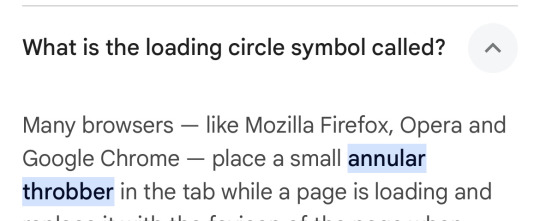#Turnbull
Explore tagged Tumblr posts
Text

He's absolutely right. But for the record, Turnbull was a right wing politician, and is clearly yet another in a long line of these leaders who try to soften their image and rebrand as moderates now that they're out of office, begging the question why he was too cowardly to publicly voice these views while in power, instead of just kissing Trump's butt.
196 notes
·
View notes
Text


Louis Jouvet, Lise Delamare, Eve Francis et Sessue Hayakawa dans "Forfaiture" de Marcel L'Herbier (1937) - remake du film "Forfaiture (The Cheat)" de Cecil B. DeMille (1915) et adapté du roman éponyme d'Hector Turnbull (1923) - avril 2024.
4 notes
·
View notes
Text
In several houses in Australia (at least), it's called the Turnbull, after a former Prime Minister who fucked up the rollout of the national cable network (NBN)
remember when you used to be able to play snake with the… hold on what’s it called

hmm. don’t think i’ll be calling it that. anyways i was gonna say remember when you could play snake with the buffering circle on youtube but. now i have other concerns
83K notes
·
View notes
Text
Napa Valley Cabernet Sauvignon ~ Raise a Glass!
No matter what time of year, we can always enjoy a well-made glass of Cabernet Sauvignon from Napa Valley. The region’s signature variety continues to show why the northern Californian region is ideal for crafting well-rounded, bold expressions of the variety, like each of these stellar selections. We suggest throwing a ribeye on the grill or slow-roasting a beef tenderloin and opening one of…

View On WordPress
#everyglassisanadventure#wineoftheday#Brion Sleeping Lady Vineyard Cabernet Sauvignon#Cliff Lede#duckhorn#Flora Springs Trilogy#Frank Family Napa Valley Cabernet Sauvignon#Lail Blueprint Cabernet Sauvignon#Moone-Tsai#Mt Brave#Sullivan Rutherford Estate Coeur de Vigne#Turnbull
0 notes
Photo

Devon Turnbull, Hifi listening Room Dream No.1, a high performance, handmade sound system with a wall of brutalist speakers is a site specific acoustic experience, described as a “shrine to music” by its creator, artist, designer and audio engineer Devon Turnbull.
#art#music#sound system#devon turnbull#hifi#listening#sound#electronics#shrine#artist#design#audio#engineer#u
2K notes
·
View notes
Photo

Haley Turnbull
851 notes
·
View notes
Text

“The Restless Bride” by Leslee Turnbull
#Leslee Turnbull#The Restless Bride#dark art#dark fantasy#gothic art#dark fantasy art#Haunted mansion
1K notes
·
View notes
Note
Hey just a questiom, how many government authorities/ministers follow you on twitter?
At least four too many
403 notes
·
View notes
Text


3x06 The Bounty Hunter | Obvious
Because I think the "obvious reasons" might not be quite so obvious to children and/or non-Canadians, I would like to Explain! The! Joke!
Bobby Orr: One of the greatest hockey players of all time
k.d. lang: Canada's Most Famous Lesbian


She's a musician and her story is pretty fascinating; she was famously profiled in Vanity Fair after being shut out of the country music scene in America for being gay. (You should read the piece! It's good!).
AND ALSO DID I MENTION SHE WAS ON THE COVER OF THAT MAGAZINE GETTING A CLOSE SHAVE FROM CINDY FUCKING CRAWFORD IN 1993


Hard to explain the impact on a baby butch lesbian. Much to consider.
And k.d. was hot shit—even Madonna said of her "Elvis is alive—and she's beautiful!" She was from the real middle-of-nowhere in Alberta (village population 600) and managed to make it big. You probably recognize at least this classic banger:
youtube
So of course Renfield Turnbull, confirmed queer (to me), would be crackin' wise about k.d. lang.
Also of no relevance to anything, Bobby Orr is from Parry Sound, which is also the closest town to my cottage, and you can still hit up fine family establishment Orr's Fine Meats and Deli or play hockey at the Bobby Orr Community Centre any time lol


Quiet Canadiana in due South, a series [more]
#due south#renfield turnbull#due south quiet canadiana#harold#she's a lesbian#3x06 bounty hunter#benton fraser#Youtube
221 notes
·
View notes
Text
The Eleventh of March speech
But make it even more EPIC
Happy Eleventh of March everyone!
Song: Silence and I by the Alan Parsons Project
#due south#benton fraser#ray kowalski#buck frobisher#renfield turnbull#meg thatcher#THE ELEVENTH OF MARCH
114 notes
·
View notes
Text


She is Captain Violence 🤣
169 notes
·
View notes
Text



"Forfaiture" de Marcel L'Herbier (1937) - remake du film "Forfaiture (The Cheat)" de Cecil B. DeMille (1915) et adapté du roman éponyme d'Hector Turnbull (1923) - avec Louis Jouvet, Lise Delamare, Victor Francen, Sylvia Bataille, Sessue Hayakawa, Lucas Gridoux, Eve Francis et Lucien Nat, avril 2024.
#films#FilmsAsie#AsianSpirit#LHerbier#DeMille#Turnbull#Jouvet#Delamare#Francen#Bataille#Hayakawa#Gridoux#Francis#Nat
1 note
·
View note
Text






pwhl players as textposts (2/?)
#pwhl#toronto sceptres#natalie spooner#cj jackson#hannah miller#daryl watts#emma maltais#blayre turnbull#renata fast#megan carter#pwhl.txt
104 notes
·
View notes
Photo

Devon Turnbull
1K notes
·
View notes
